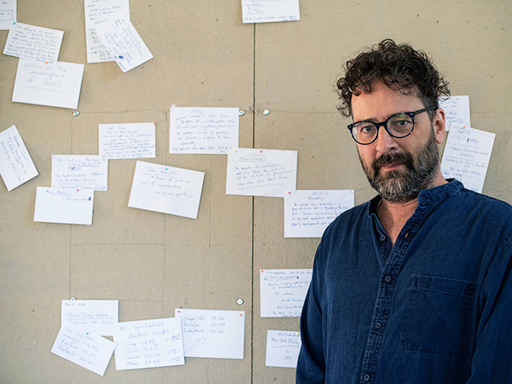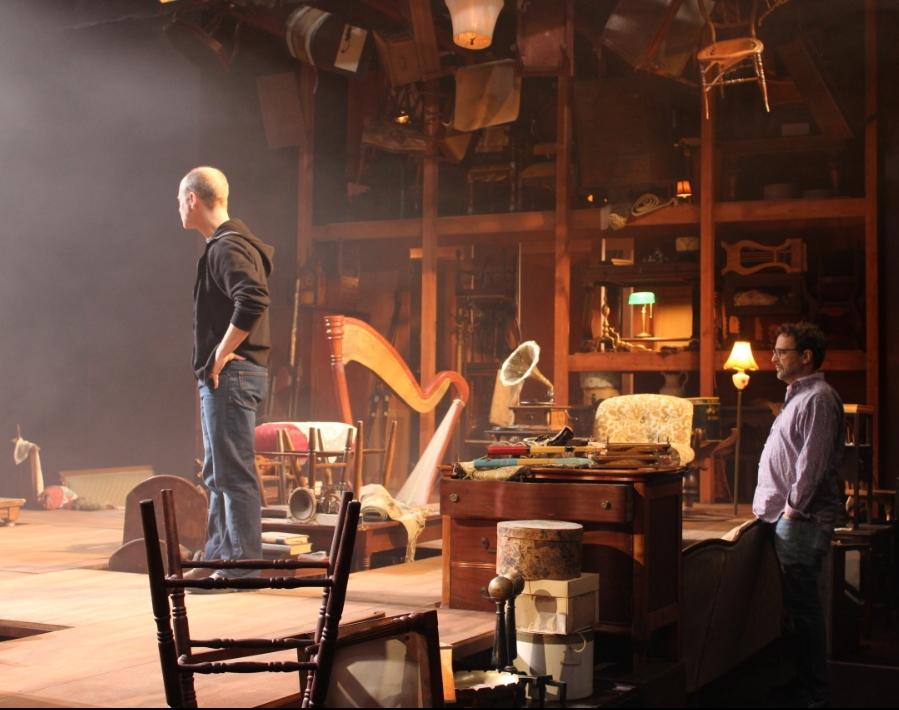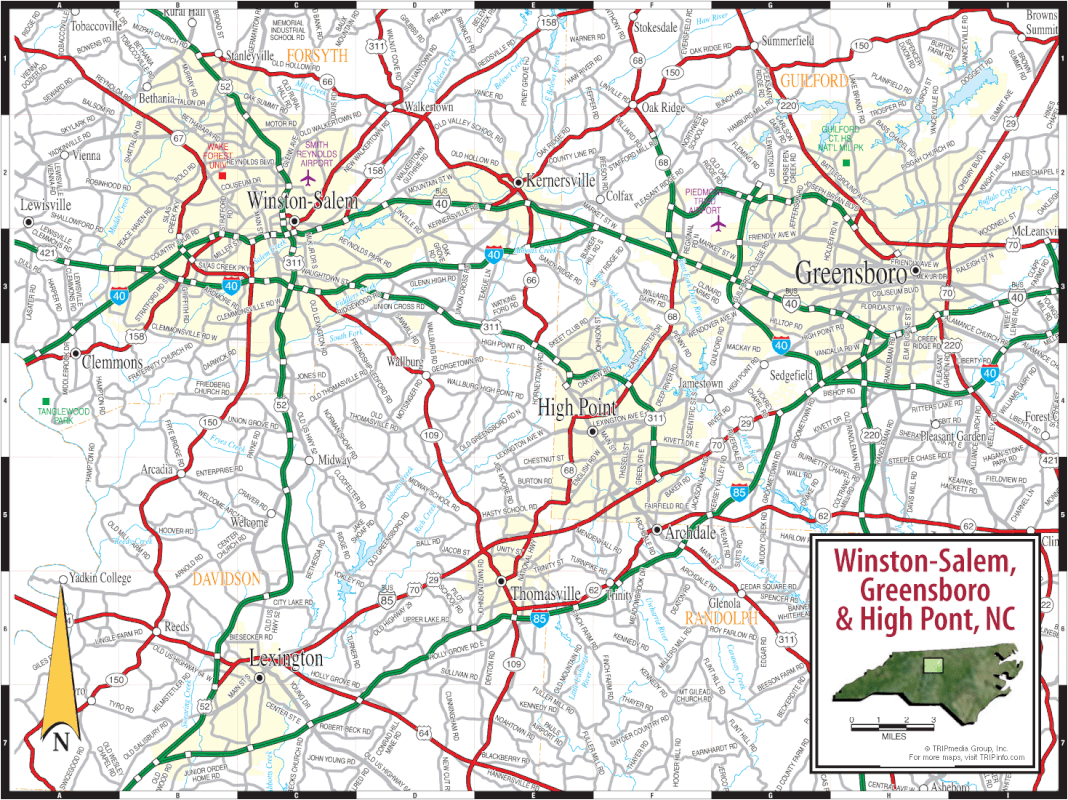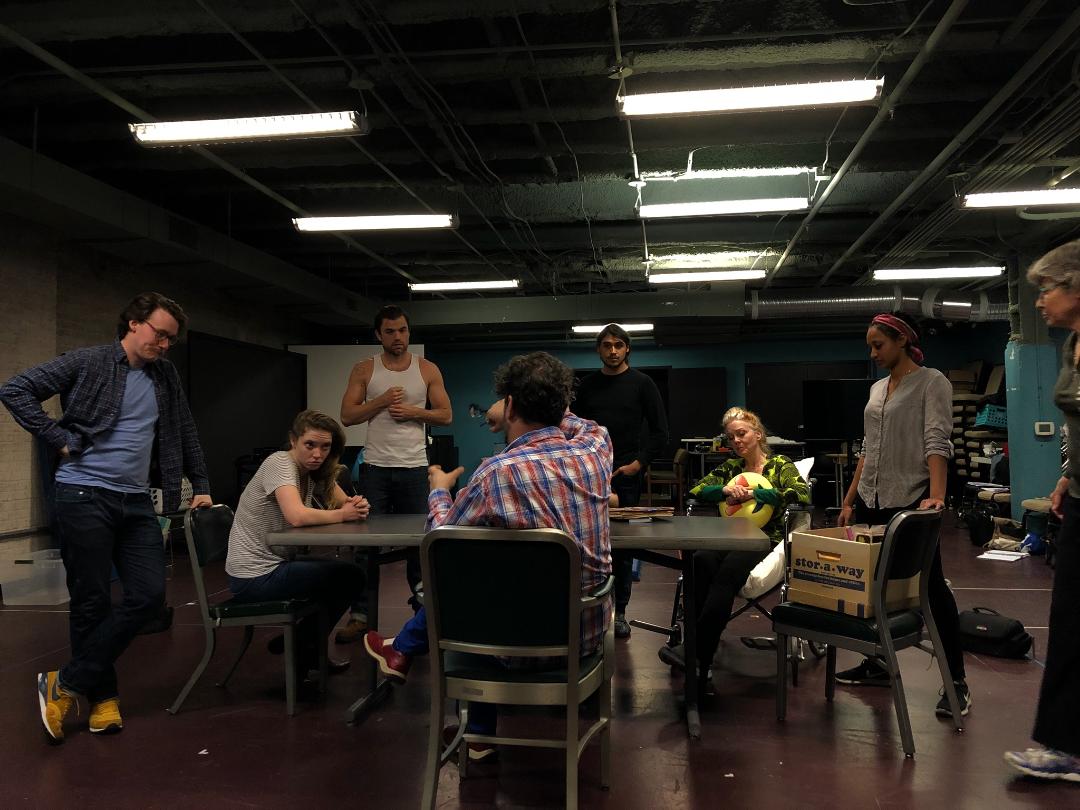By Margarita Kompelmakher, PhD
Photo: Triad Stage
Over the past year, the Lucas Artists Residency Program welcomed an inaugural group of playwriting Fellows. It has been my pleasure to spend time with this talented and diverse group of artists and observe how the discipline of theater makes a home for itself at Montalvo. The following is Part 1 in a series of audio-blog portraits that discuss their playwriting projects and topical questions about the theater—past and present, here and elsewhere.
I am struck by a number: 15. The number corresponds to the years that
Preston Lane has served as the co-artistic director of the
Triad Stage Theater in Greensboro, North Carolina. This fifteen-year tenure has offered him a unique perspective on the American regional theater scene and what it means to develop an audience in one place over a period of time. At dinner the previous night at the Lucas Artists Residency, we talked about the necessity of thinking beyond the megalopolis of New York to embrace a theatrical language that speaks to the south. Today we continue the discussion in the library, this time with a tape recorder between us.
Preston’s parents introduced him to the magic-like possibilities of the stage when they took him to see Henrik Ibsen’s play Hedda Gabler at the Barter Theater in Virginia (the oldest regional theater in the country). He was 10 years old. Since then, he’s worked as an actor, completed studies in directing at the Yale School of Drama, and directed productions for the Dallas Repertory Theater. In 2002, Preston returned to his home state of North Carolina and co-founded Triad Stage with his producing partner, Rich Whittington. The motto of the Triad Stage is “Nationally Recognized. Locally Produced”. We discuss his commitment to rooting himself in a community in North Carolina and what it means to act locally while transcending an insular form of regionalism.
Setting up shop in Greensboro, North Carolina in 2002 wasn’t easy. When Preston and his partner raised funds to remodel the old Montgomery Ward building into a theater space in 1999, the Piedmont-Triad area of North Carolina was flourishing. By 2002, the area had undergone a radical economic transformation with the outsourcing of manufacturing jobs in the area to other parts of the world. “NAFTA was a bomb that went off in our cities and we weren’t prepared for it,” says Preston. Out of necessity, building the Triad Stage and its programming became a project of reimagining the area and revitalizing a community in need of a new future.
Preston speaks with passion about creating a narrative for the future of his community. He opened the Triad’s first season with a production of a
Tennessee Williams play. Williams is the quintessential southern writer whose works have been translated from the stage to film in such productions as
A Streetcar Named Desire and
Cat on a Hot Tin Wolf . Perhaps fittingly then, Preston chose to meet his audience in a familiar place by choosing to open the first season with Williams. But he did this with his characteristic subversive flair: he chose one of Williams’ lesser-known works,
Suddenly Last Summer .
In this audio clip, Preston speaks about his love/hate relationship with Tennessee Williams and conjures up a Williams different from that expressed in movie renditions of his plays.
Preston started to write “about the mountains” after realizing that there was a shortage of opportunities to work on material that was Appalachian. His first big writing work was an adaptation of the Old English epic poem Beowulf called Brother Wolf . In the play, he develops a non-realistic theatrical language of Appalachian lyrics, sounds and textures.
While writing
Brother Wolf , Preston began a collaboration with Appalachian and Piedmont-style musician Laurelyn Dossett. The two of them have worked on six shows together. Listen
here to samples of Dossett’s music for
Brother Wolf .
Photo: Triad Stage
During his current LAP residency, Preston is writing the last triad in a trilogy of plays set in the fictional town of Harboro. In the following audio clip, he describes his desire to create a fun and entertaining play that riffs on the conventions of the “well-made play” genre while also offering commentary on racial tensions in the south, which he describes as the “darkness that lies beneath.”
And listen to artists arriving for lunch in the LAP Commons. Culinary artist Andrea Blum is cooking in the adjacent kitchen.
We return back to the future of regional theater. The regional theater movement in the United States began after World War II as an alternative to commercially-minded and mainstream Broadway theater. The movement gained traction in the 1970s and 1980s when dozens of theaters were formed around the country and it continues to serve as a popular model today (i.e., a
Time article reported that there were 1,800 regional theaters in the US in 2003). However, regional theater is sometimes criticized for not living up to its mission as a space for innovative works because the shaky economic foundations of the model can force it to pander to audiences rather than invest in productions that challenge the status quo. In the following audio clip, Preston shares his experience working within, and against, the regional theater model and imagines a future for artistic creation in his hometown and in the United States at large.
As the artists set the table outside the LAP Library door.
It is lunchtime at the LAP and our conversation turns to food. Preston is a few hours away from boarding a plane back to North Carolina and shares with me his excitement at the prospect of dining the next day at his favorite breakfast joint in Greensboro—the
Coliseum Country Café . While he understands himself as “both in and outside” of the community in which he works, he reaffirms his commitment to the region by returning to the place he calls home: “I haven’t seen my favorite people in Greensboro in 3½ weeks…I am going to be with my people…not elite southerners, but your working class…who my family were…are.”
Before we part ways, I convince Preston to participate in a lightning round of questions, some intended to be humorous, that offer a glimpse into his LAP residency.
Notes:
1. Zoglin, Richard. “Bigger Than Broadway!” Time , 27 May 2003, accessed July 9, 2018, content.time.com/time/magazine/article/0,9171,454479-1,00.html
**************************************************
Margarita Kompelmakher is a scholar, lecturer and producer who specializes in global performance and media arts. She recently completed a PhD on the topic of human rights media in Eastern Europe and teaches in the theater and film department at West Valley College in Saratoga, CA.
**************************************************





